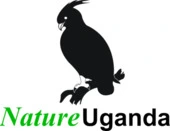Is Hass Avocado a miracle tree for the Kigezi Hills?

For the last twenty years, Nature Uganda has been promoting various projects and programmes aiming at community’s empowerment through Nature conservation and communities’ livelihood improvement.
Nature Uganda established community tree nurseries and in total over 1m tree seedlings have been supplied to the communities within the landscape, in addition to over 6000 bamboos domesticated on peoples farms and over 10,000 bamboos planted at Muko central forest reserve, where we hope to get supplies for further bamboo propagation.
Fruits especially, avocado, passion and tree tomato are among other agroforestry trees supplied and established around Echuya landscape as alternatives for income and nutrition. Over 4,000 grafted avocado seedlings, 6,000 tree tomato seedlings and over 12,000 passion fruits vines were given to Forest Adjacent communities and this has proved successful since farmers are fetching a lot of money from their sales.
In Uganda, HASS Avocado has proved to be more competitive than any other variety because of its;
- Resistance to pests and diseases.
- Longer shelf life of more than two weeks after harvesting.
- High protein and mineral content
- Various uses including manufacture of cosmetics and medicine. Thus being more competitive on the market by fetching more money than any other Avocado varieties in the region.
HASS avocado requires minimal operational cost like adding of manure, weeding and pest praying in-case its affected which is rare. Therefore, its estimated that out of the 2200 seedlings Nature Uganda supplied to the farmers, after five years (maturity), we expect 2200 seedlings to produce between 4,400,000 and 6,600,000 seeds every year.
If the price at the local market is still Uganda shillings 500, the total amount to be collected by the farmers will be between 2,200,000,000 and 3,300,000,000/= or in short 2.2b to 3.3b every year. This will be tremendous income for the communities around Echuya forest.
In addition, once the Avocado gets established, upland soil fertility will be reinforced against loss of nutrients, soil erosion in the landscape and community livelihoods will be improved due to improved crop yield and improved incomes from the sale of the fruits.
Silting of lake Bunyonyi wetland system will be controlled and further more Echuya forest and Lake Bunyonyi wetland system restored and conserved against degradation, restoring the habitat for biodiversity species such as birds.
In the bid to implement HASS Avocado initiative successfully, Nature Uganda invested over 16.5m in this exercise to support operational costs.
Related Posts
Recent Posts
Forests and wetlands degradation and it’s impacts on herpetofauna and other wildlife
Embracing Regenerative Tourism as the next step in Sustainable Tourism
Engaging Site-based Communities in Research and Conservation: The Locally-based Monitoring Initiative
All Categories
- Conservation and Development (27)
- Eco-tourism (3)
- Education and Awareness (10)
- Forests (7)
- Habitats (9)
- Nature walk (2)
- People (5)
- Projects (9)
- Public dialogue (6)
- Research and Monitoring (18)
- Sites (4)
- Species (10)
- Wetlands (12)
- Wildlife (6)




